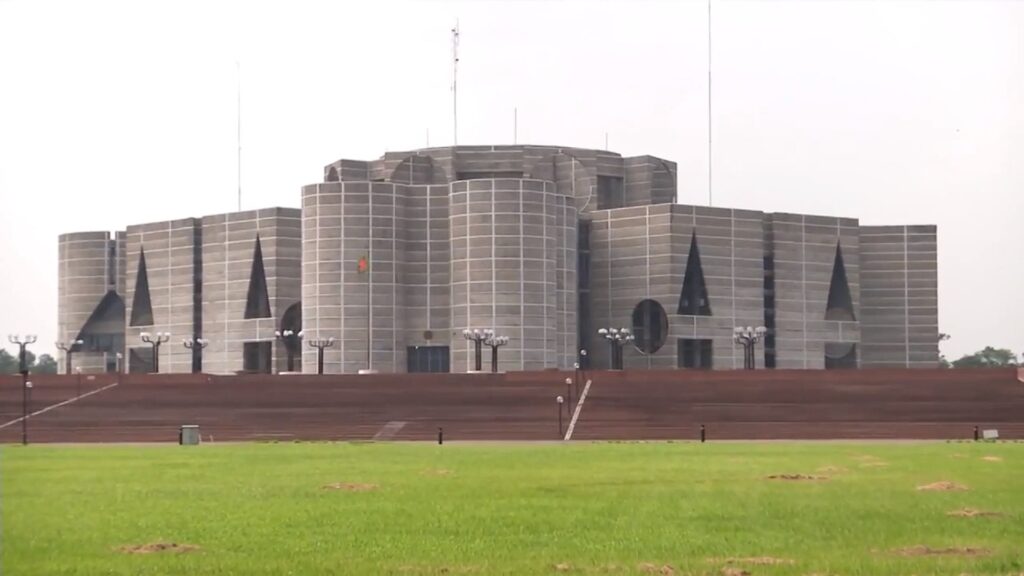The necessity for constitutional reform in Bangladesh has become increasingly evident in light of persistent issues related to governance, democracy, and the rule of law. The country’s constitutional framework, established in the wake of its independence in 1971, has been criticized for its rigidity and the excessive concentration of power, particularly in the hands of the Prime Minister. I have tried to examine the historical context of the Bangladeshi Constitution, identify critical flaws in the current governance structure, and propose comprehensive reforms to establish a balanced governance system.
Historical Context and Flaws in the Constitution:
The Proclamation of Independence in 1971 laid the groundwork for the Constitution but also introduced significant flaws by vesting all powers in the head of state. This temporary framework, accepted under duress during a critical period, has had lasting implications on the constitutional landscape. As noted by scholars, subsequent governments—both democratic and military—have constitutionally extended their powers, often excessively, leading to a lack of accountability (Khan, 2023; Bhattacharya, 2022).
The Constitution of 1972 was passed hastily, within seven months, to establish a semblance of governance in a war-torn nation. This rush resulted in a lack of thorough scrutiny and debate within the Constituent Assembly, raising questions about its legitimacy (Rahman, 2019). Consequently, the framework established has enabled the concentration of power in the Prime Minister’s Office, undermining the principles of parliamentary democracy.
Concentration of Power and Lack of Accountability:
The current constitutional framework gives the Prime Minister all executive powers, which is fundamentally inconsistent with democratic principles. Despite the practice of parliamentary democracy, the original drafters of the constitution failed to create a system of checks and balances to ensure an accountable executive (Hossain, 2020). The Prime Minister’s unchecked authority has led to a governance system where legislative oversight is often ineffective, as the ruling party dominates parliamentary proceedings.
Moreover, the constitution provides a “blank check” for conducting elections, which compromises the integrity of the electoral process. As observed by Chowdhury (2021), the lack of independent electoral oversight has resulted in elections that do not reflect the people’s true will. This situation is exacerbated by the ruling party’s influence over the Election Commission, undermining the credibility of democratic processes.
Proposal for a Federal System:
Establishing a federal government structure is imperative to address these systemic issues. Currently, decentralization in Bangladesh is mainly superficial, with local bodies executing decisions by central authorities. Strong provincial governments would facilitate the delegation of powers, fostering a balance between national and local political entities (Talukder, 2020). Such a reform would empower regional governance and promote healthy competition between political parties at different levels.
The central government should retain only limited critical powers, while others should be decentralized to provincial governments. This power distribution is essential for enhancing democratic participation and ensuring local voices are heard in governance (Zaman, 2018).
Limiting Political Tenure:
Limiting the tenure of political leaders is crucial to safeguarding against the entrenchment of authoritarianism. Historical evidence suggests that leaders who serve multiple terms often become increasingly authoritarian (Ariff, 2023). Therefore, constitutional provisions should be enacted to restrict the Prime Minister to a single term or maximum double, thereby preventing the emergence of dictatorial governance and promoting a culture of accountability within political parties.
Revising the Role of the President:
The current parliamentary system leaves the President with nominal powers, exacerbating the imbalance of authority in favor of the Prime Minister. To rectify this, it is essential to vest significant powers in the President, enabling a more active role in constitutional appointments, such as the judiciary and the Election Commission. A semi-presidential system, similar to models in France and Germany, could provide the necessary checks and balances to prevent the abuse of power (Riaz, 2023).
Ensuring Judicial Independence:
The judiciary in Bangladesh requires a comprehensive overhaul to ensure its independence. Current provisions that allow the Supreme Court to engage in constitutional review should be abolished, limiting its jurisdiction to civil and criminal matters. Establishing a new constitutional court independent of political influence is crucial for upholding the rule of law and ensuring fair judicial proceedings (Hossain, 2020).
Electoral Reforms:
An interim national government should oversee electoral processes and enhance their integrity. This government would ensure transparency and credibility in elections. Additionally, implementing a dual voting system, where each voter casts one vote for a local candidate and another for a political party, could enhance representation and accountability, mirroring successful practices in countries like Germany (Sultana, 2023).
Reforming Bangladesh’s constitutional framework is imperative for establishing a balanced governance system that aligns with democratic ideals. By addressing the concentration of power, promoting decentralization, ensuring judicial independence, and enhancing electoral integrity, these reforms aim to create a governance structure that genuinely reflects the people’s will. Through transformative changes, Bangladesh can move toward a future where democracy and the rule of law are firmly entrenched.
Writer:
General Secretary, China Bangladesh Friendship Center-CBFC
———
Bibliography
– Ariff, A. F. H. (2023). Personal Communication.
– Bhattacharya, D. (2022). Democracy and Governance in Bangladesh: Challenges and Opportunities. Dhaka: University Press Limited.
– Chowdhury, N. (2021). The Politics of Constitutional Reform in Bangladesh.
Journal of South Asian Studies, 14(2), 56-78.
– Hossain, N. (2020). Judicial Independence in Bangladesh: A Critical Analysis.
Dhaka: National Law University Press.
– Khan, B. U. (2023). Personal Communication.
– Rahman, M. (2019). Federalism in Bangladesh: A Historical Perspective.
Asian Journal of Political Science, 25(1), 1-20.
– Riaz, A. (2023). Personal Communication.
– Sultana, R. (2023). Electoral Reforms in Bangladesh: A Path Forward.
Bangladesh Political Review, 10(1), 45-67.
– Talukder, S. (2020). The Role of Local Government in Democratic Governance: A Case Study of Bangladesh. Journal of Governance, 8(3), 25-39.
– Zaman, S. (2018). Power Dynamics in Bangladesh: The Rise and Role of the Prime Minister. Dhaka: Academic Press.

